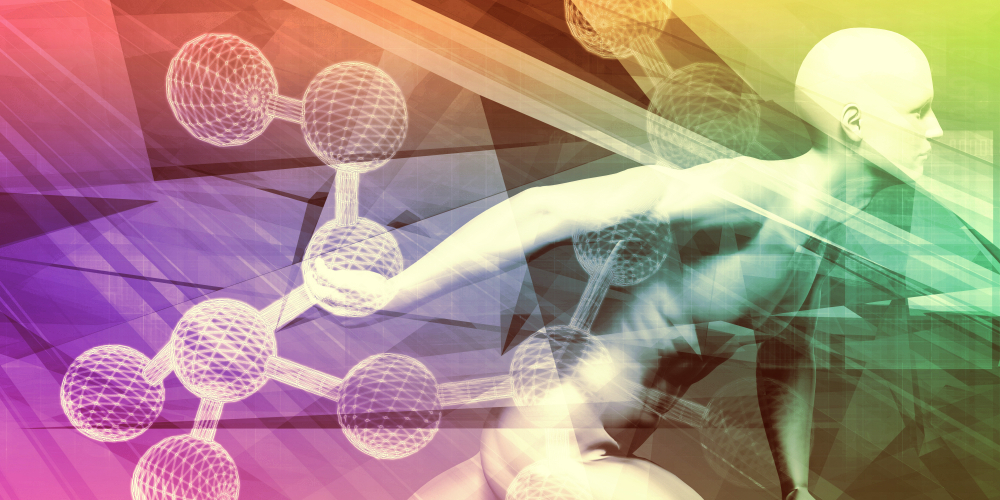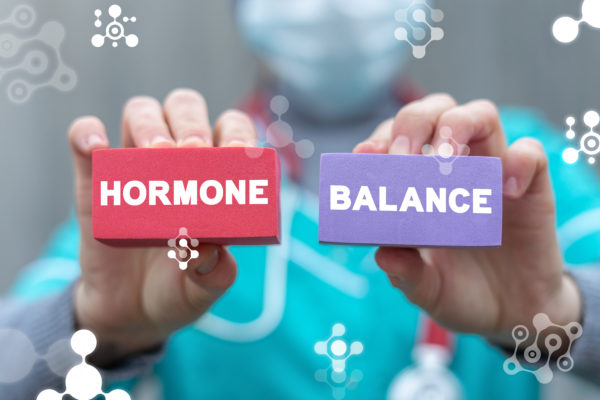For most medical treatments, there are always some side effects. Human beings’ bodies are predisposed to fight any new substances present in the system. With that same breath, people tend to react differently to the medication.
These side effects are usually experienced during or after the treatment and vary from one individual to the next. The late appearance of the side effects is considered normal and they tend to clear up on their own without any intervention or any other medication. Severe side effects to hormone therapy are very uncommon but whenever experienced, there are expert ways of combating them.
A deeper examination of hormone therapy side effects has yielded a clear understanding as to what causes the difference in reactions from one patient to the other. The most documented factors might include the dosage of the treatment, the interaction of the treatment with other drugs, and the health history of the patient.
Regardless of whether mild or severe, it is important to report any side effects you experience or any concerns you might have about them to your physician. Doctors are able to ascertain how severe the side effects are. Sometimes hormonal drug therapy may need to be adjusted if side effects are severe.
The following are some of the risks that can be associated with the different types of growth hormone therapy that are readily available in the wellness sphere.
In summary, there are risks to any kind of medicine that you take, that always has the intention of helping you. There are also different types of hormone therapy and each can come with its own risks and side effects. The one thing to keep in mind though is that statistically hormone therapy is deemed safe for most people, but you should always consult with a doctor or a good anti-aging clinic before you decide to partake in it and should ALWAYS be doing it under doctor supervision.
Risks Associated With Each Therapy
The pituitary gland works to ensure that any hormone therapy treatment undertaken is successful. If it fails, the whole treatment is halted in its tracks. That said, here are some risks linked to different hormone replacement therapies;
Estrogen Therapy
Estrogen therapy is a treatment made for menopausal symptoms. After starting estrogen therapy, issues such as vaginal dryness, irritability, painful intercourse, hot flashes, and bone loss start diminishing.
Some of the common side effects of estrogen therapy include bloating, vaginal bleeding, leg cramps, breast tenderness or swelling, indigestion, feeling sick, headaches, and swellings in some parts of the body. Usually, these side effects subside after a couple of weeks but you can ease them through a number of things.
For example, a low-fat, high-carb diet can help reduce breast tenderness, stretching during exercising helps to ease leg cramps, and taking the estrogen with food reduces feelings of sickness and indigestion.
Estrogen With Progesterone
As the name suggests, this type of therapy combines both estrogen and progesterone. Most times, a synthetic form of progesterone known as progestin is used. The treatment is also occasionally referred to as combination therapy and it is most appropriate for women who haven’t undergone hysterectomy.
When estrogen is taken alone, it increases the chances of getting cancer of the lining of the uterus, also known as the endometrium. But when taken with progesterone, the chances are lowered. Progesterone is a common method of birth control and under this therapy, it is used to treat symptoms of menopause like hot flashes.
Some of the risks of taking estrogen and progesterone include headache, appetite and weight changes, nervousness, diarrhea, stomach upset, low sex drive, stomach cramps or bloating, and vomiting.
Thyroid Hormone Therapy
When natural thyroid hormone levels reduce, manufactured ones are made to replace the lost amounts. This is known as thyroid hormone therapy which is common in pill form. The treatment is used to address the problem of underactive thyroids producing little to no thyroid hormones. This condition is known as hypothyroidism.
Just like other hormone therapy treatments, Thyroid hormone replacement has several risks that most times occur due to toxic, excess administration of thyroid hormones. They include palpitations, weight loss, anxiety, vomiting, sleeping disturbances, severe headaches, diarrhea, flushing and sweating, and abnormal menses.
DHT Blocking Therapy
When excessive dihydrotestosterone(DHT) is produced, female pattern hair loss and male pattern baldness start to manifest. DHT is a hormone -a derivative of testosterone- packed with powerful androgenic properties. During puberty in males, the hormone is used in the development of adult male characteristics.
The increase of DHT levels is reliant on the raised levels of testosterone. The extra amounts of testosterone produced are usually converted into DHT causing its overproduction. DHT blocking treatments work by inhibiting this conversion process from occurring and in turn, preventing hair loss which is a by-product of excessive DHT.
DHT Blocking Therapy presents few side effects which are very uncommon for men undergoing the treatment. These side effects include; low libido/loss of sex drive, skin rashes, tender breast tissues, and testicular discomfort.
Growth Hormone Therapy
Healthy individuals who suffer from growth hormone deficiency have little to worry about because the side effects are easy and cause no damage. But for those with underlying issues, there are a few risks that might pop up. Growth hormone therapy increases the activity carried out by IGF-1, the regeneration of cells.
They help in the regrowth of worn-out cells. In most cases, there is a failure of differentiation between a normal cell and tumor cells. This has a catastrophic result, where previously treated tumors might start regrowing.
The therapy does not directly introduce growth hormones into the body but instead, it works with the endocrine system to stimulate their production. The common medication of choice is peptides. Once the peptides are introduced into the system they directly target the pituitary gland.
When you undergo growth hormone therapy, you risk contracting Type II diabetes, increased susceptibility to some types of cancers, swelling of the arms and legs, Carpal Tunnel Syndrome, increased insulin resistance, and muscle or joint pains.
Testosterone Replacement Therapy (TRT)
Testosterone is one of the most important androgens that caters to the characterization of a male species. The hormone is produced naturally by the testicles and the adrenal glands. Some ailments might affect the functioning of these glands for hypogonadism making them unable to produce the required levels of the hormone.
With proper treatment, the levels can be reverted to the optimum level. The most popular treatment is TRT( testosterone replacement therapy). It’s not only popular, but it also has the best results. The intensity of the therapy is always guided by what a doctor has concluded in regards to the severity of the condition at hand.
TRT treatments risk stimulation of red blood cells overproduction which might cause blood clots. It might also enlarge breasts, worsen sleep apnea, boost the growth of existing prostate cancer, cause acne, and shrink testicles or restrict the production of sperms.
The dosage and administration of the therapy varies thus bringing about different types of therapy available;
Injectable Therapy
The use of injectables is the most common type of testosterone replacement therapy that is inexpensive. When it comes to injectables several things might differ from one patient to the next. This might include the duration and frequency of the dosage. Those who are suffering from a severe testosterone deficiency might get dosages that are a few weeks apart while the others might get an injection from one to two months.
Another noticeable factor of injectable therapy is the area at which the treatment is administered. It can either be directly applied to the subcutaneous tissue or deep into the muscle tissue especially at the glutes.
Topical Therapy
Testosterone therapy can also be conducted with the use of topical gels. The application is done daily and this treatment method is believed to be a more stable way of carrying out the therapy. The gradual reintroduction of testosterone helps the body bounce back at a more natural pace.
Patients under this type of medication are advised to avoid too much contact with other individuals to avoid transferring it. A patient’s negligence can be detrimental to children and pregnant women who are very vulnerable to such medication. To curb such accidents, topical patches are used, although there have been complaints about irritation on the skin where the medication is administered.
Implantation Therapy
This is a more invasive type of TRT. The doctors implant a small pellet around your posterior by making a small incision underneath the fatty area of the skin. In other cases, instead of making the small cut a syringe with a slightly larger nozzle can be used to prevent a large tissue scar.
The pellet starts to dissolve at a gradual pace which takes a time limit of almost 6 months before the next dose. As the dissolving process takes place small amounts of testosterone are continuously released into the bloodstream.
Hormone Therapy is Proven Safe For Most People
The introduction of synthetic hormones to address the deficiency in the body is referred to as hormone therapy. This ensures that the chemical composition of the body is retained to ensure proper functioning. The best way to utilize hormone therapy is through a trained professional.
For a treatment that comes with a boatload of benefits a lot of care needs to be taken to avoid treading in murky waters.
Many factors affect the decision to use hormone therapy, for example, age, underlying health issues, the severity of symptoms, available treatment options, and financial constraints.
The most important factor of them all is whether the potential benefits outweigh the risks. And the best way to take up hormone therapy is by asking your practitioner about the best treatment to follow. The following are some of the pros that you are most like to enjoy with hormone therapy
Potential Benefits
While there are many types of Hormone Replacement Therapies, they all come with a handful of benefits. Each treatment is unique, which brings about the list of some of the uses listed below;
Combats Cancer
Hormone therapy plays a significant part in blocking or changing certain hormones hence preventing cells from regenerating into forming malignant tissue. In addition to that, some types of cancers that require hormones to grow include breast, adrenal, prostate, and endometrial cancer.
Improved Sexual Health
For both women and men, hormone therapy helps in improving the health of the reproductive system while also improving the sexual drive. The introduction of the androgen-like Estrogen in women and Testosterone in men ensures that the normal reaction to sexual stimuli is achieved.
Reduces Symptoms of Menopause
Studies have shown that systemic hormone therapy such as a pill, patch, or nasal spray helps with hot flashes, night sweats, disturbed sleep, mood problems, and decreased sexual desire/ sexual satisfaction. The improvement of these symptoms brings about a better quality of life lowering the chances of depression and burnout.
Prevention of Bone Loss
Naturally, estrogen and testosterone are essential in the health of the bone structure. There is strong evidence that shows these therapies are effective in reducing the risk of fractures and bone degradation. The predisposition of osteoporosis is mitigated by the reintroduction of hormones back to the body.
Improved Energy Levels
Hormone therapy tends to eliminate the gray clouds hovering around you hence totally renewing your energy. Once patients start to feel the energy has been regained, they can take up physical exercises and thus live a more active lifestyle.
Improved Appearance
The most visible indication of hormone imbalance or hormone deficiency is the skin. It might start drying out, getting hyperpigmentation, formation of wrinkles and fine lines. All these can be corrected by the use of hormone therapy. The treatment works its way to the production of substantial amounts of collagen that improves the appearance of the skin, hair, and nails.
Improved Muscle Mass
The atrophy of muscles can be felt as there is a negative shift in the chemical composition in the body. Apart from drooping muscles, the formulation of excessive fat might be experienced. This might hinder the mobility of an individual. Hormone therapy is used to correct this type of inconsistency. It works by rejuvenating the growth of lean muscle cells and improvement of connective tissues.
Correcting Disorders
A common disorder in both men and women is hypogonadism. This is a form of autoimmune disease that causes the degradation of gonads. Another disorder that gets better with the introduction of hormone therapy is hypothyroidism. This is brought about when the thyroid glands fail to produce enough thyroid hormones in the body. The causes of these disorders can be corrected by continuous hormone therapy.
The Bottom Line?
There will always be a risk associated with taking any type of medication, so it is important to weigh the difference between its pros and cons. Oftentimes, risks tend to arise when the treatment is conducted in an uncouth manner; in the absence of a professional. It’s imprudent of you to not seek guidance in such cases.
Doctors act as buffers between you and the best treatment plan for your case. Hormone replacement therapy is worth it as long as a medical professional is the captain of that ship.
Take the first step in the right direction and choose us to offer the right anti-aging clinics to cater to your needs. Our Prolong Labs clinic listing not only has the best clinics but also has ties to trustworthy medical professionals. Contact us and start your treatment seamlessly.






